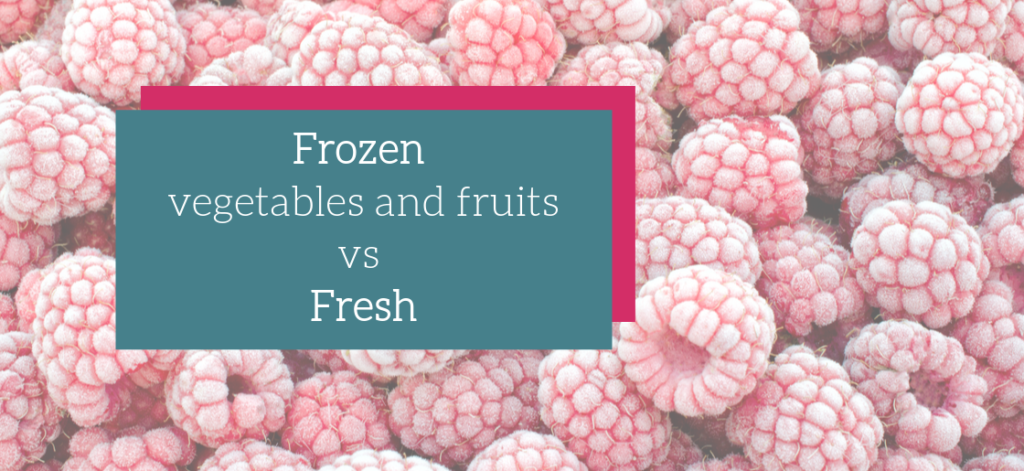
We are fortunate to enjoy the full convenience of being able to choose to eat any vegetable or fruit at any time of year, with the concept of eating seasonally not always the first consideration when meal prepping. We are also fortunate to enjoy the convenience of buying and eating vegetables and fruits in various forms; fresh or frozen vegetables, tinned, dried or even freeze-dried and much more.
Preserving the vegetables and fruits in these forms will involve a level of processing. The dilemma many faces is whether you are compromising on the nutritive value if you choose one over the other. Many factors play a role in which form to buy and nutritional value is one of them.
We know that vegetables and fruits are an excellent source of fibre, vitamins, minerals, antioxidants and we also know we need to eat around 7 portions a day, although aiming for 10 portions a day. With a diet that’s rich in plant foods, our bodies will have a good array of nutrients to work efficiently and optimally and you feel amazing as a result! However, do they need to be fresh to provide enough of those nutrients or can they be eaten in any other form , effectively once they have been processed after picking?
Do those vegetables need to be fresh to provide good nutrients?
Firstly you are right to assume there may be a difference in nutritive value if a food has been processed; if a food has been heavily processed; the nutrients will be less intact and thus fewer nutrients will be bio-available in that ultra-processed form.
However, whilst we may be aware that tinned or dried forms will involve more processing, where does that leave us when it comes to comparing the nutritive value of fresh vs frozen vegetables and fruits?
Bottom line: The less the processing, the higher the nutrients available but does this apply to frozen vegetables?
What happens from farm to plate?
Let’s first consider the whole process from farm to plate; there’s actually a surprising number of people and processes involved. Planting the seeds requires equipment and manpower as does tending to the crops whilst they grow, harvesting the produce before transferring them to storage awaiting transportation either directly to the supermarkets or a distribution centre.
Of course, that’s not the end; after unpacking, shelves are stocked, where they remain until selected by shoppers in the fresh produce section. Even then, they may remain in the fridge or larder, where the general environment and temperatures vary before it actually reaches the plate and consumed.
That’s a significant number of steps and potential exposure to the food that will have an impact on its ultimate nutritive value.
The UK Food Standards Agency (FSA) reports an estimated half a million cases of foodborne illness linked to known pathogens in the UK annually. Now, this does not mean that we should be limiting our consumption of fresh produce in any way whatsoever and indeed, it is important to understand that cooking will, in many cases, render any pathogens safe; along with our immune system and our acidic digestive tract. However, when compared to frozen equivalents, there are no significant statistics of foodborne illness to report.
So, are frozen vegetables and fruits actually healthy?
When food companies decide on the vegetables and fruits destined for freezing, fresh produce is washed, blanched, packed and frozen within hours of picking. Frozen vegetables are frozen at their peak when it comes to freshness and nutrient content and within hours there is a protective barrier between the food and the elements, thus minimising the loss of nutrients through exposure and handling. In contrast, fresh vegetables may sometimes be picked unripe, so that they can ripen on the supermarket shelves.
How about blanching?
Blanching is where the fresh vegetables are plunged into boiling water for a few seconds (this varies depending on the vegetable) to help them retain their vibrant colour, flavour, some texture and also nutrients.
Whilst vegetables can be frozen directly from fresh, frozen vegetables that have been blanched will be crispier, for example, green beans and denser, for example, broccoli and cauliflower and this also cuts down the cooking time needed, therefore reducing the opportunity for nutrient loss.
Many will argue that this process may destroy some nutrients such as vitamin C but as the blanching process is a very quick one, the loss is minimised. Longer cooking at home from fresh may well lead to a bigger loss of these vitamins. Interestingly, research suggests that the vitamin C content of fresh vs frozen vegetables have even been found to be higher in frozen, probably due to the reduced time during storage and transport before freezing.
Frozen or fresh – how do you decide?
Nutrient profile aside, how you are using your frozen vegetables and fruits will be the deciding factor. You will compromise the texture if you opt for frozen as they tend to be a little softer in texture and not as crispy when compared to fresh. In a soup, smoothie or a puree, this is not a problem and therefore frozen vegetables and fruits work very well.
However, if you’re eating them in a salad or roasting, then fresh is the better option, where texture is important.
One more thing….
Frozen vegetables tend to cheaper, available all year and less likely to spoil. That’s a Win! Win! Win! when it comes to budgeting and more importantly food waste, something I passionately try to avoid in my kitchen. This also means choosing frozen vegetables that are just the vegetables themselves; in other words, no prepackaged sauces etc.
We’ve all been there, buying beautiful fresh vegetables which are often expensive with good intentions, before the week runs away with you and you’re forced to bin them as they are left to fester and spoil. No more food or hard-earned money waste!
Do frozen vegetables have a shelf-life?
Usually frozen vegetables last between 8-10 months but this is usually a “best before” date. There is no effective expiration date in terms of safety and whilst you may compromise texture and taste, they are still safe to use well after the best before date, as long as they have been kept at constant temperatures in the freezer.
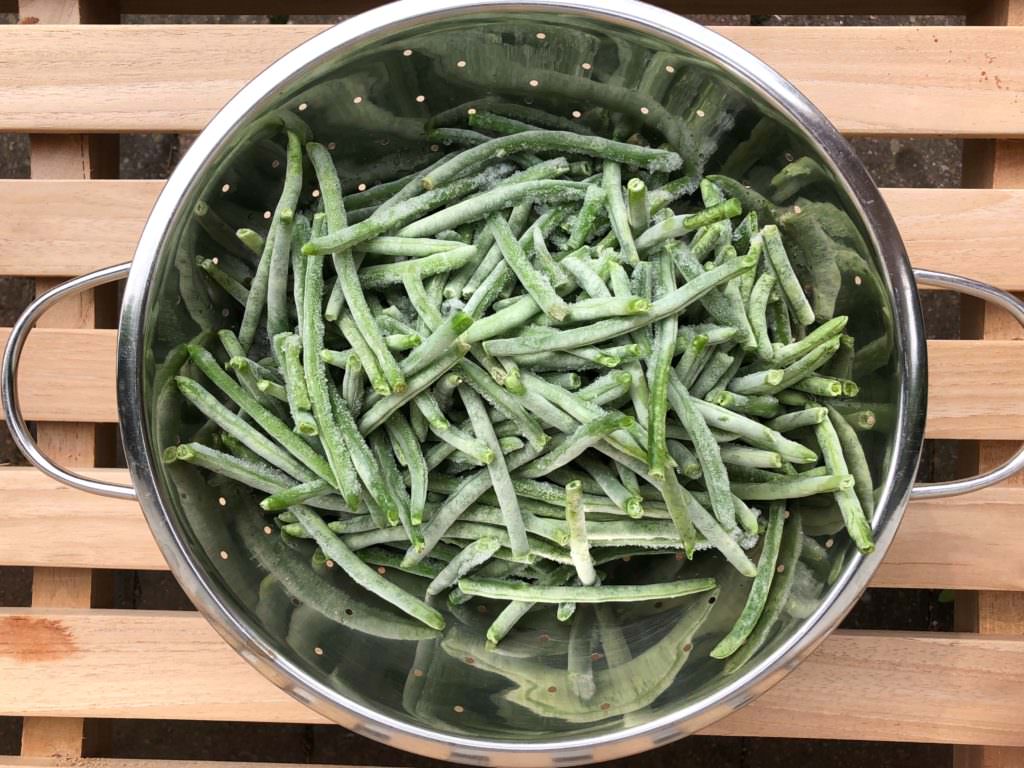
Bottom line:
There are many factors that will affect the ultimate nutritive value of the vegetables and fruits you eat but the most important thing is that you eat enough portions of these highly nutritious foods, aiming to reach 7 if not 10 portions a day. If the convenience of opting for frozen vegetables and fruits allows for this, then go ahead and buy and eat from frozen, guilt-free.
Have you also considered the impact of climate change on the availability of food? With more extreme weather conditions projected for the future, food productivity will be affected and being open minded so that we do not only rely on fresh sources will help ease the burden on food and agricultural productivity.
How frozen vegetables can help with your meal prep
With our busy schedules, prepare a healthy meal is easy from the freezer, where the vegetables are already cut and slightly cooked. Whist some fruits may require thawing, most vegetables can be cooked straight from the freezer and when combined with a good protein and grain or starchy vegetable, will result in a quick, easy and healthy meal in minutes.
You’ll always find frozen leaf spinach in my freezer – that’s a quick and easy one to add to any breakfast for an extra portion to help me reach my 10-a-day tally. It’s also a great one to throw into a curry for an extra veggie boost for the whole family.
What are your vegetable to eat from frozen and how do you eat it?
I’d happily fill my freezer with frozen vegetables and fruits and would love your ideas in the comments below!


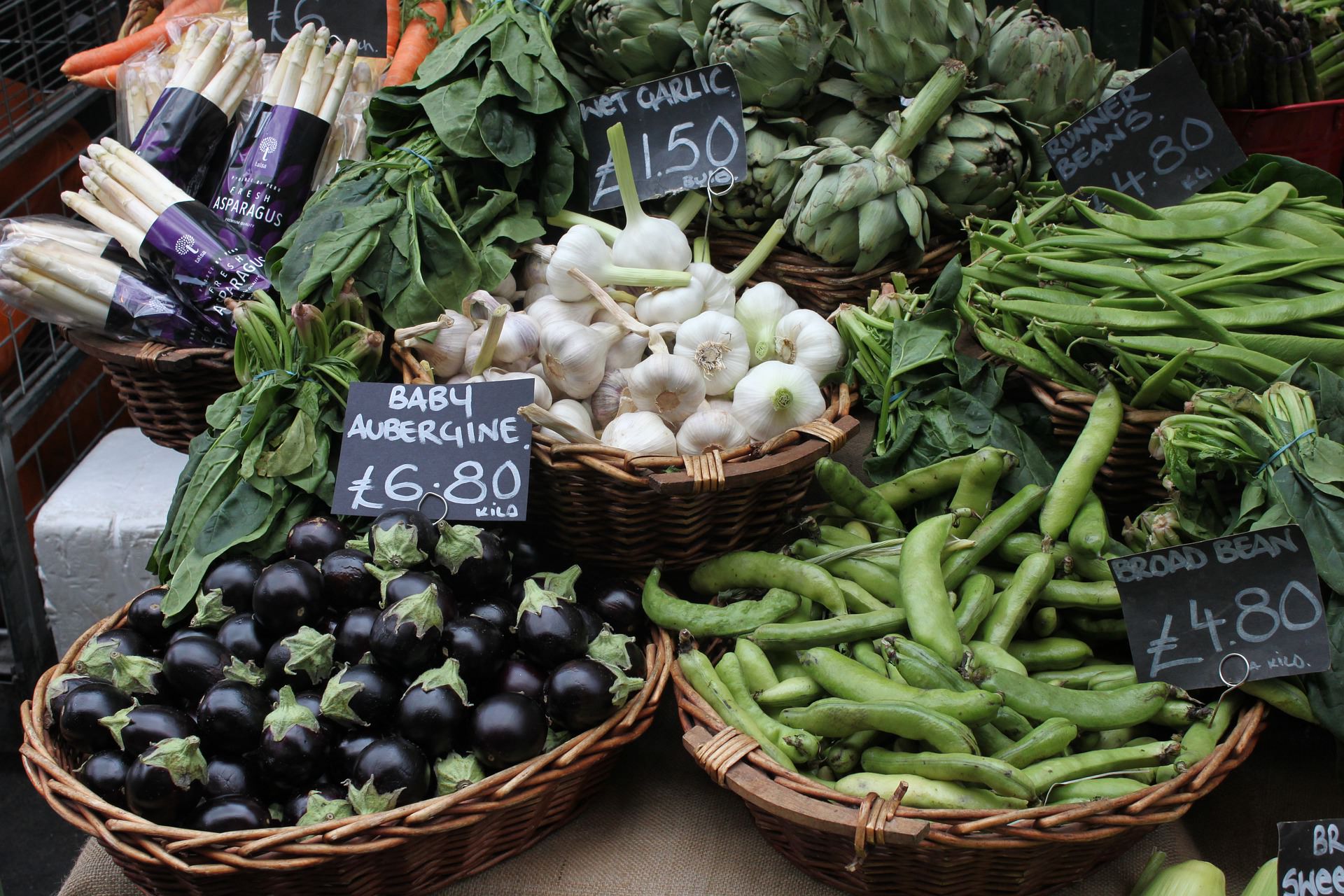

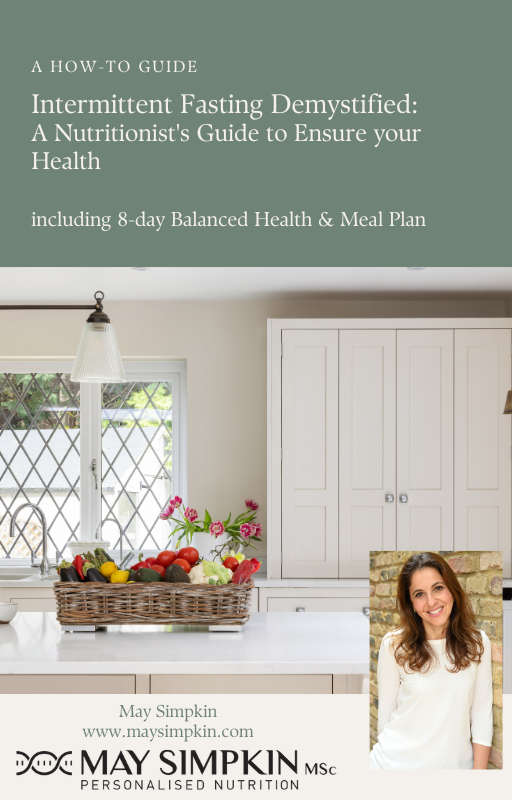
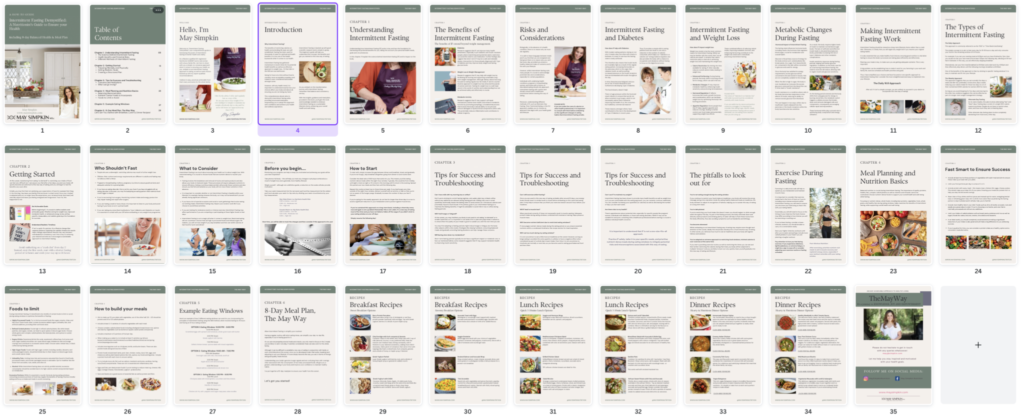


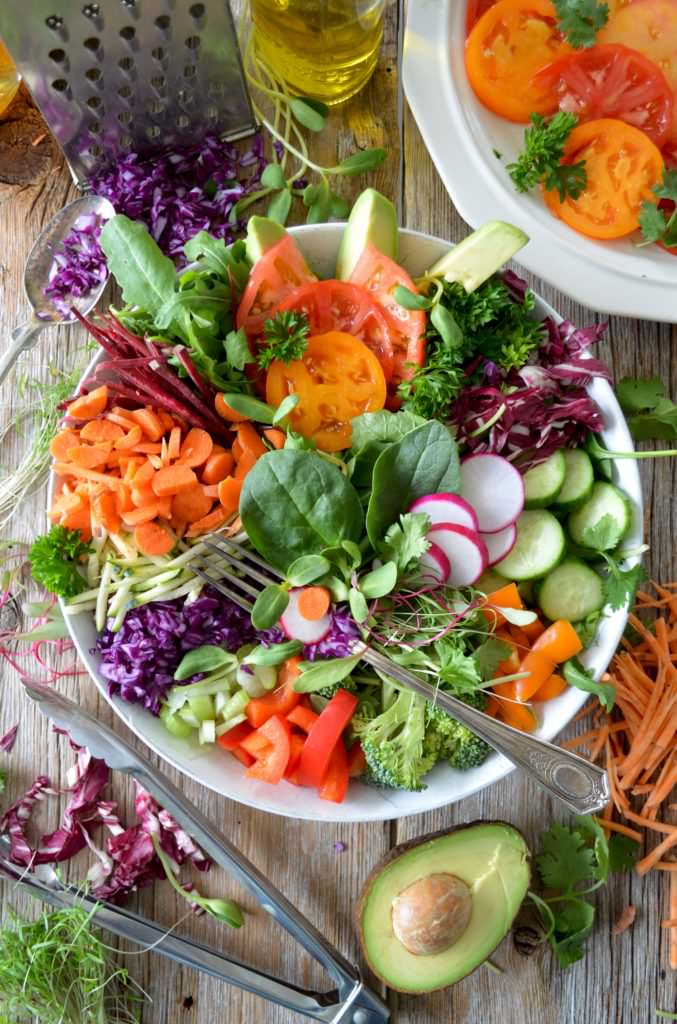
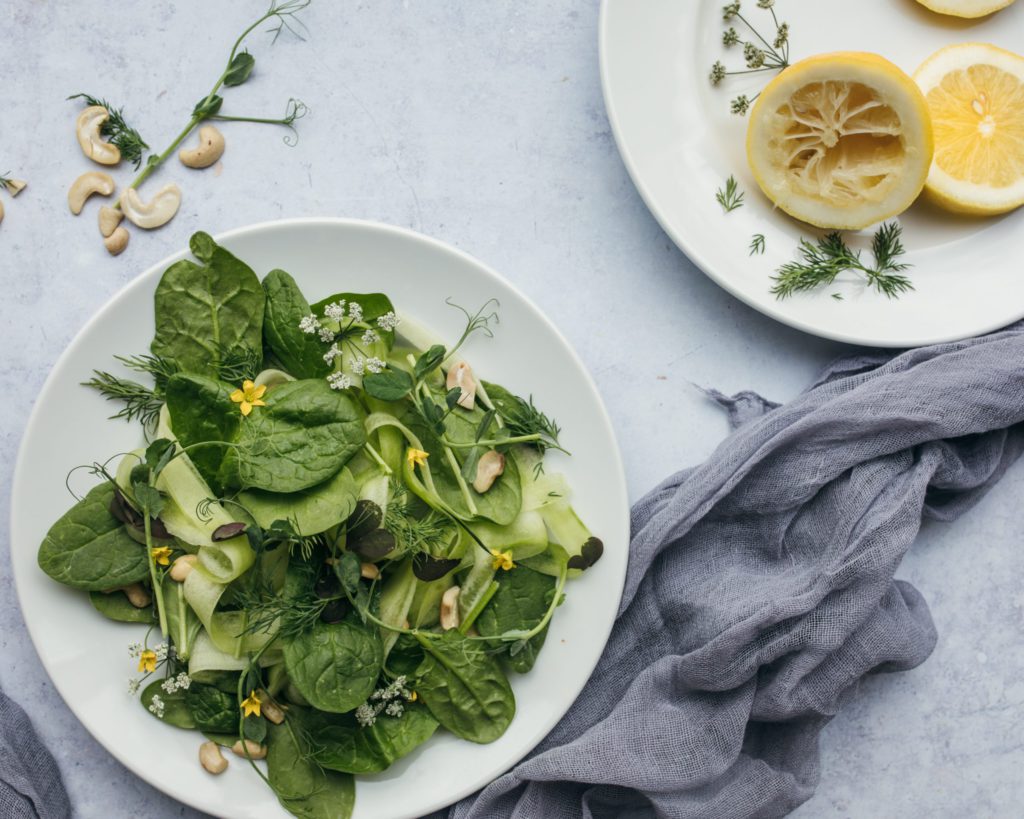
0 Comments